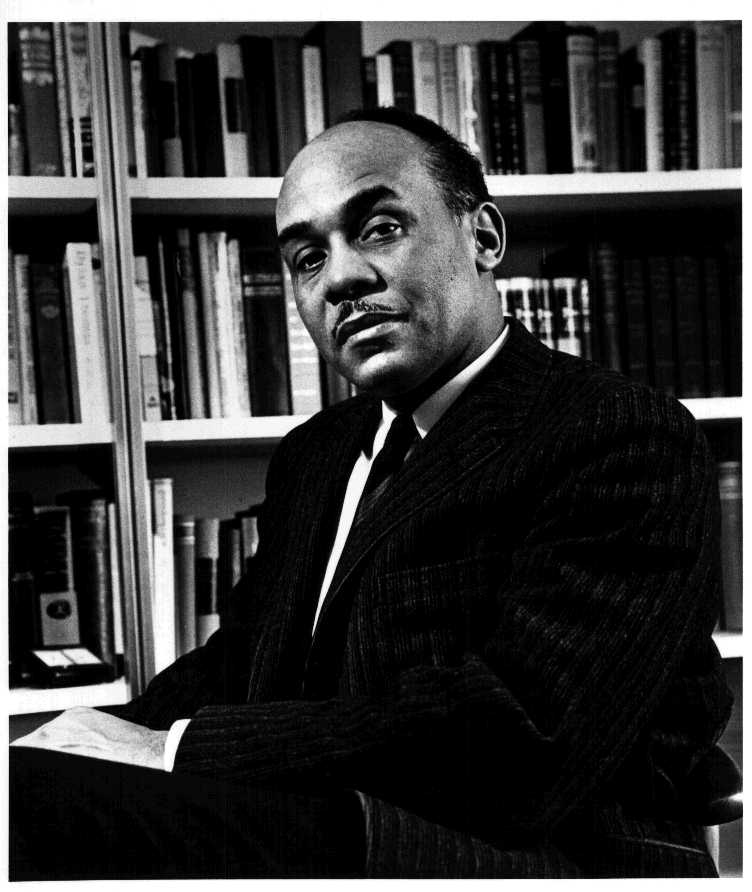Dear Mr. Ralph Ellison,
Thank you.
If those two words weren’t used so frivolously, when someone opens the door or passes the salt, I would end my letter there in gratitude, sign my name and post it. However, simple cards bearing this message can be found anywhere, and what I feel cannot be. Understand, sir, you have shaped me through your writing as Invisible Man created pause for me to evaluate my privilege as a white, young individual, while other young people, who are people of color, are presently oppressed worldwide. You were the first to scream the refrain, “Black Lives Matter,” through the banners for Tod Clifton, ‘our hope shot down,’ and over sixty years later your banned book, full of dangerous ideas, is still fighting for visibility to “tell unparalleled truths about the nature of bigotry in the minds of both victims and perpetrators.”
Mr. Ellison, to truly comprehend the personal revolution your narrative incited, you must understand my background. I can count the African Americans I know on a single hand, as I live in an area where diversity is a scarce resource. Growing up, my experiences led me to believe racism was something to be referred to in past tense, belonging to the Civil Rights era and mentioned annually on Martin Luther King, Jr. Day. Like the narrator in the beginning of Invisible Man, I did not understand what impact history has on our present cultural climate and was unaware of latent and even blatant racism, still choking the social atmosphere.
I must be honest here, in the beginning, your book represented only an assignment. One to be read, to be writ and to be done. However, as I read, I experienced change by becoming the narrator. No, I do not have ‘bahd hair’ or ‘thick lips,’ nor I am not of the same gender as the narrator. But I began to identify with his and others’ struggles and filled his anonymity with my identity. The transition to sympathy was subtle, beginning with the young, white woman at the club who was sexually assaulted while the narrator was physically and mentally demeaned. I could see myself reflected in the type, dancing naked in a ring surrounded by grasping hands and jeers, then feeling for the black men about to undergo treatment of a similarly cruel caliber. The small annoyances, steady setbacks and life-shattering discrimination which the narrator endured began to pick at me, culminating in my own disillusionment with racial ‘equality,’ past and present.
You see, sir, while I was reading Invisible Man, the world did not stand still. On August ninth, a few days after I opened my mind to consider the impact of the ideas I was reading about Michael Brown, an African American man, who was shot eight times by a police officer, at least six bullets entering from his back. I followed the story like most Americans, but I was also experiencing a blend of past and present, fiction and reality, as I continued through your narrative of a history of oppression leading to straining race relations, Tod Clifton killed by police for resisting arrest, the uprising in Harlem against violence and discrimination and the narrator’s final act to deny authority and societal conventions. I finished the novel, disturbed by the narrator’s shattered mind, to the Ferguson grand jury’s acquittal of the police officer involved in the shooting, Darren Wilson. I believe the black American psyche was destroyed by the injustice of that November night. I know my simplistic view of good versus evil, cultivated by my environment and cracked by you, finally fractured and splintered.
When the crystal globe I mentally established as an impression of my world no longer matched actuality, the crumbling walls provided a perfect kaleidoscope for reflection and new insight. I knew I did not want to withdraw from my society, despite its unfairness toward certain ethnic and racial groups. Instead, I would use my position as a global citizen to engage with other activists to build a better reality to match my ideals of peace and equality. Mr. Ellison, you empowered me by writing the truth I was too naive to recognize in my community and nation. Without being made aware of the continued disparity between my race and yours, I could not desire and then seek change. Again I offer only plain words of gratitude, which are not adequate to convey my appreciation.
Thank you.
Morgan Barron



